Giro d'Italia: Astana's plan comes together for Nibali on final mountain stages
Kangert and Scarponi to the fore on the road to Sant'Anna di Vinadio
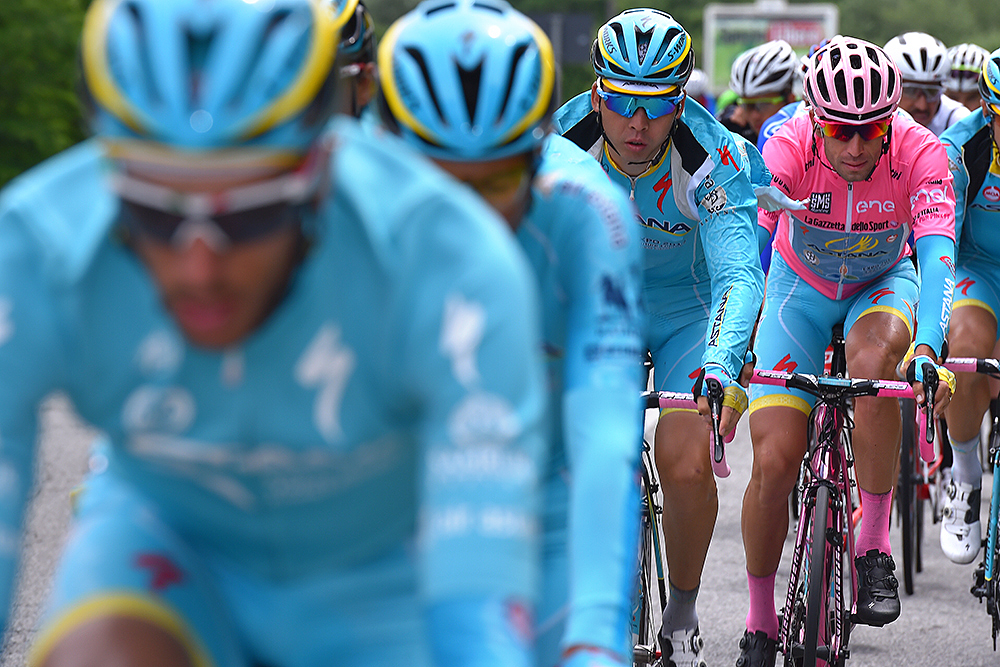
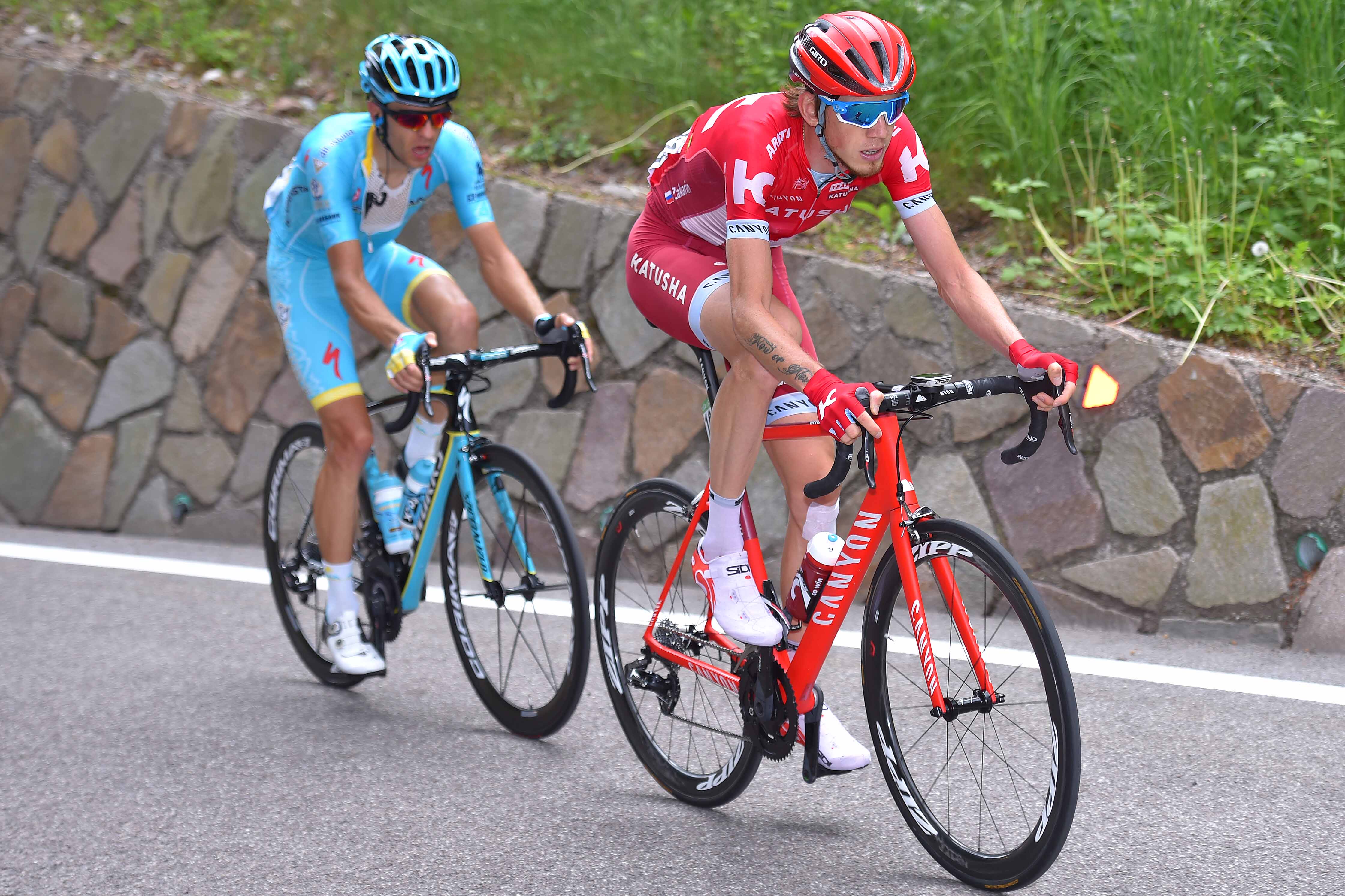
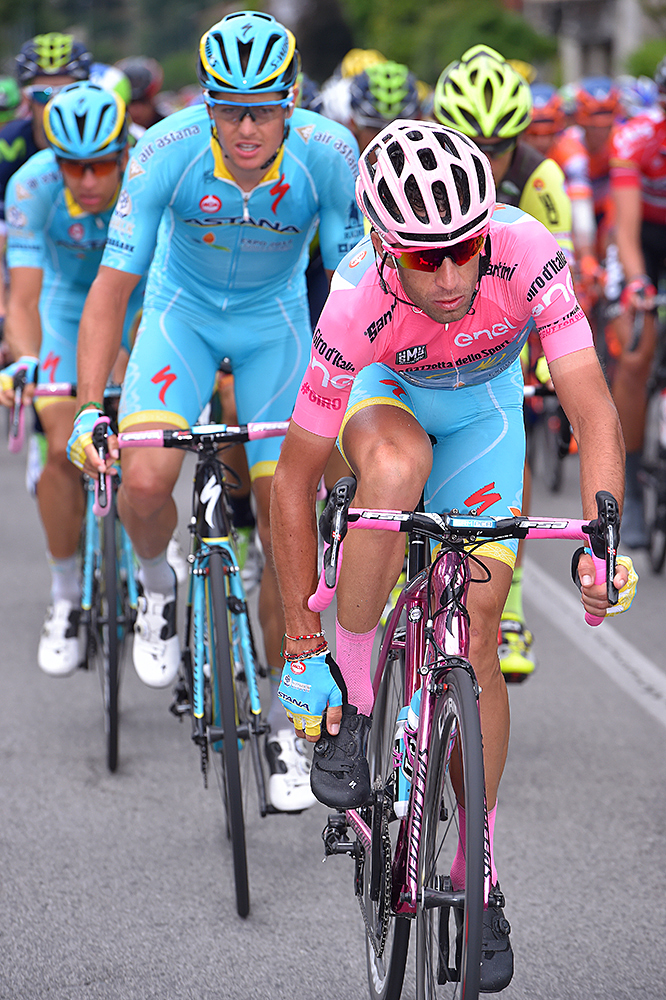
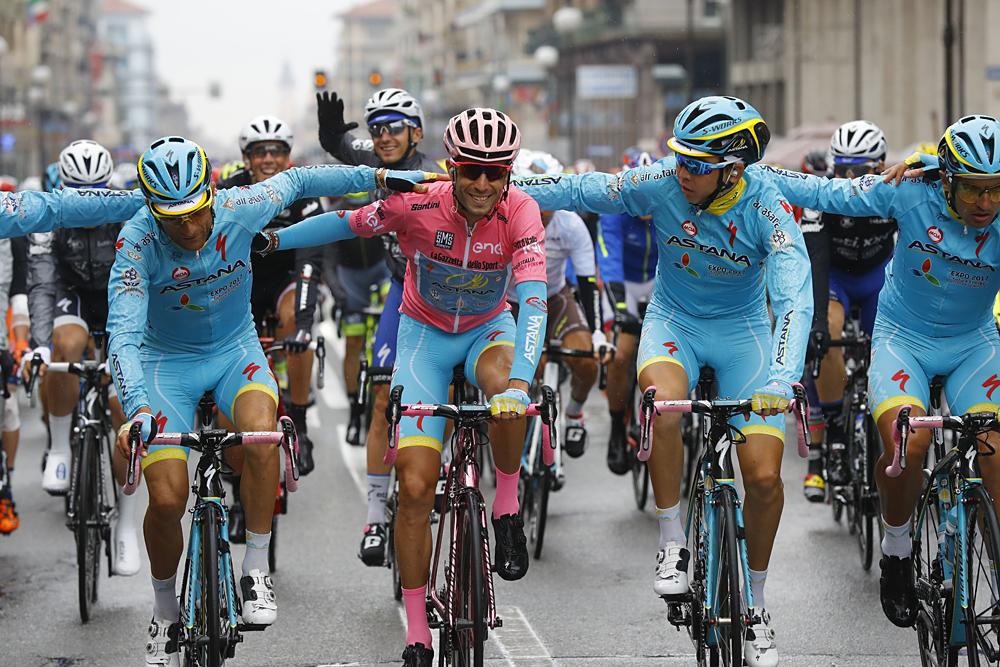
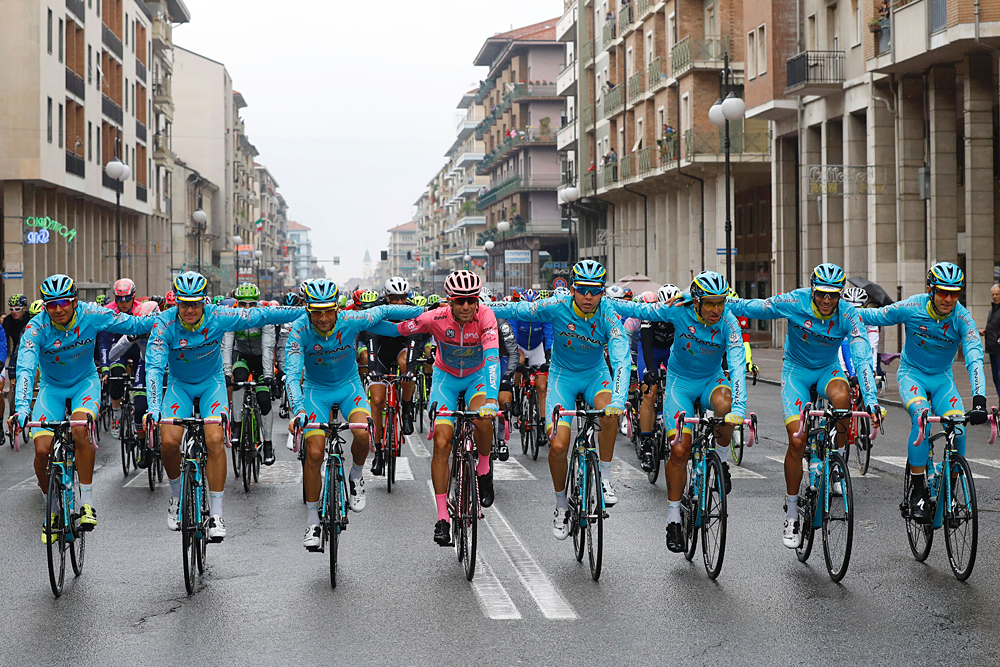
Forty-five minutes after stage 20 of the Giro d'Italia had ended, his day's work done, Tanel Kangert (Astana) stood alone on an outcrop above the finish at Sant'Anna di Vinadio, quietly surveying the scene below.
Giro d'Italia: Nibali secures maglia rosa on stage 20
Nibali: I didn't even believe it myself
Vinokourov hopes Giro d'Italia success will persuade Nibali to stay with Astana
Nibali gets glossy pink bike to celebrate Giro d'Italia victory - Gallery
Nibali wins 2016 Giro d'Italia
Nibali reveals illness before mountain time trial at Giro d'Italia
Nibali pulls off a Giro d'Italia resurrection - Analysis
Merry bands of tifosi were still chanting the name of his team leader and new maglia rosa Vincenzo Nibali, who was speaking in a mobile broadcast unit near the line, while pieces of pink confetti from the podium celebrations lay sprinkled on the finishing straight.
"I have to say I was pretty emotional after the finish," Kangert told a pair of reporters who interrupted his solitary post-race recovery meal. "Normally I don't have too many emotions but today was a really hard day."
The 134-kilometre leg from Guillestre to Sant'Anna di Vinadio included some 75 kilometres of climbing and was Nibali's final chance to dislodge Esteban Chaves (Orica-GreenEdge) from the overall lead. Nibali began the day 44 seconds off the maglia rosa, and Astana's plan of attack was clear from the outset.
Much like when Fabio Aru divested Tom Dumoulin of the red jersey on the penultimate day of last year's Vuelta a España, Astana's astonishing collective strength and – relative – freshness was a key element in seizing the pink jersey.
Kangert was the man delegated to enter the day's early break for Astana, while Michele Scarponi was charged with setting the tempo for Nibali on the decisive ascent, the Colle della Lombarda. Nibali duly attacked five kilometres from the summit, and was able to rely on a lengthy turn from Kangert closer to the top.
"I didn't have the legs to pull longer but fortunately he didn't need it either. I was in the day's break and I could have played the stage victory but I'm happy with the way the day went," said Kangert, who had double cause to smile on Saturday evening, as his friend and fellow countryman Rein Taaramae (Katusha) claimed the stage win.
The latest race content, interviews, features, reviews and expert buying guides, direct to your inbox!
"I was trying to help my old friend Rein Taaramae a little bit because I knew if they made me stop then I would have no chance to play for the stage win. I don't know if I was helpful or not but he was strong enough to win the stage and I was really happy for that."
Plan
Kangert's principal task, of course, was to help Nibali, and Astana's intentions from the very outset were patently obvious. Reporters who drove the course ahead of the stage spotted Astana's second team car parked on the roadside midway up the Col de Vars, waiting to slot in behind the day's early break. The team was later fined 200 Swiss Francs for that infraction by the commissaires – as was Movistar, who committed the same offence.
"It wasn't a coincidence that I was on the front and the guys were pulling behind. Everything went by the plan," Kangert said.
By the lower slopes of the Colle della Lombarda, Kangert and the early escapees had a lead of ten minutes over the pink jersey group, but Astana's directeurs sportifs hesitated before ordering Kangert to wait for Nibali. The Estonian ultimately stopped just three kilometres shy of the summit and, running out of road, was compelled to wheel to a halt altogether rather than soft-pedal as he waited for Nibali, just as Michele Scarponi had done on the descent of the Agnello a day earlier.
"I did everything, I even want back a bit," Kangert said. "I stopped on the road, but the problem when you stop for five or six minutes is that you need to go immediately at 400 plus watts. I think it was not a good idea to stop me completely and put my legs down. Because when I had to push, I didn't feel good when I had to start again from zero."
More on this story:
Giro d'Italia stage 21 highlights – Video
Giro d'Italia state 21 – Finish line quotes
Scarponi – startlingly spry for a 36-year-old rider who missed a chunk of racing in the spring after breaking his collarbone at Tirreno-Adriatico – was the Astana rider who received most plaudits immediately after the stage, but Kangert's contribution, with the Giro in the balance, was a significant one, too. When Nibali finally bridged up to him, there was little need for words, just a number.
"The only thing I asked him was how many watts he wanted. And in the end, he didn't want too much, but when he passed me he wanted more than I had in my legs," said Kangert, who smiled when asked to name the figure. "I can't say that. Nah, it was not that high. I think we were doing 370 watts and that's nothing special. But at that height and after this kind of stage, it was a pretty high pace."
Fourth overall and 4:43 down on Friday morning, Nibali hauled himself back into contention and eliminated Steven Kruijswijk (LottoNL-Jumbo) from the running on the road to Risoul. On stage 20, the strength of his Astana team helped him to make up the final 44 seconds that separated him from the maglia rosa.
In Turin on Sunday afternoon, Astana general manager Alexandre Vinokourov paid tribute to the collective effort that somehow helped Nibali to put a different slant on a trying Giro in the final two days in the mountains.
"The secret is the whole team, we stayed united all the way to the end," Vinokourov said. "On the last rest day, I said to them: 'The Giro finishes in Turin. Let's keep going.' On Thursday I said to Vincenzo: 'Steven Kruijswijk is too strong but he's alone and he doesn't have a team.' This was a team victory."
Watch 2016 Giro d'Italia stage 21 highlights video
To subscribe to the Cyclingnews video channel, please click here.

Barry Ryan was Head of Features at Cyclingnews. He has covered professional cycling since 2010, reporting from the Tour de France, Giro d’Italia and events from Argentina to Japan. His writing has appeared in The Independent, Procycling and Cycling Plus. He is the author of The Ascent: Sean Kelly, Stephen Roche and the Rise of Irish Cycling’s Golden Generation, published by Gill Books.